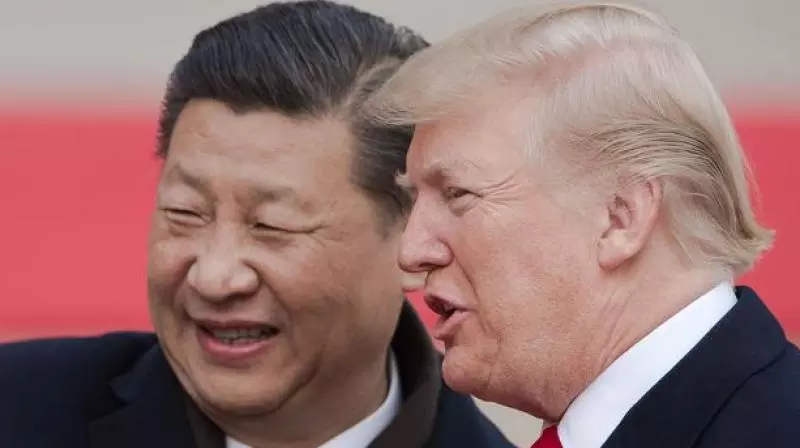China's Xi likely to decline Trump's inauguration invitation

China's Xi likely to decline Trump's inauguration invitation.
Washington: Chinese leader Xi Jinping would likely see President-elect Donald Trump’s invitation to attend his inauguration as too risky to accept, and the gesture from Trump may have little bearing on the increasingly competitive ties between the two nations as the White House changes hands, experts say.
Trump’s incoming press secretary, Karoline Leavitt, confirmed on Thursday that Trump extended an invitation to the Jan. 20 ceremony. The Chinese Embassy in Washington said it had no information to provide. But experts don't see Xi coming to Washington next month.
Why wouldn't Xi attend? “Can you imagine Xi Jinping sitting outdoors in Washington, D.C., in January at the feet of the podium, surrounded by hawkish members of Congress, gazing up at Donald Trump as he delivers his inaugural address?” said Danny Russel, who previously served as assistant secretary of state for East Asian and Pacific affairs.
Russel, now vice president for international security and diplomacy at the Asia Society Policy Institute, said Xi would not allow himself to “be reduced to the status of a mere guest celebrating the triumph of a foreign leader — the U.S. president, no less.”
Yun Sun, director of the China program at the Stimson Center, a Washington-based think tank, said Beijing will play it safe when there's no protocol or precedent for a Chinese leader to attend the inauguration of a U.S. president.
“I don't think the Chinese will take the risk,” Sun said. There could be risks in the guest list, for example, Sun said, noting that Taiwan's top diplomat in the U.S. attended the swearing-in of President Joe Biden in 2021. Beijing considers Taiwan to be Chinese territory and has repeatedly warned the U.S. that it is a red line not to be crossed.
Should Trump slap tariffs as high as 60% on Chinese goods upon taking office as he's threatened, Xi would look like a fool if he had chosen to attend, and that's unacceptable to Beijing, Sun said.
Rather, Chinese officials are known for their obsession with the dignity and security of their leader when traveling abroad, said Russel, who has negotiated high-level summits with the Chinese. “They have always demanded that any leader trip to Washington be treated as a full ‘state visit’ with all the bells and whistles,” Russel said.
What's ahead for U.S.-China relations? But it should be expected that planning is underway for Trump and Xi to meet in person soon, Russel said. Trump prefers in-person meetings with foreign leaders, especially key adversaries, and Beijing might believe it can get a better deal by dealing directly with Trump, Russel said.
Trump's return to the White House is expected to further intensify the U.S.-China rivalry. He has picked several China hawks for his Cabinet, including Sen. Marco Rubio as the secretary of state and Rep. Mike Waltz as the national security adviser.
Beijing has adopted a “wait-and-see” approach but says it is prepared to hit back should Washington raise tariffs on Chinese goods or make other unfriendly moves.
Sun of the Stimson Center cautions that Trump's invitation does not exclude hostile policies toward China. Trump visited China in 2017 and “played nice,” but the following year he launched the trade war, she said.
“We've seen this before,” Sun said. “For Trump, there's no contradiction between carrot and stick. For China, that's a contradiction. It will add to China's desire to play safe, not to be played by Trump, whether it is a friendly or a hostile message.”
( Source : AP )
Next Story

